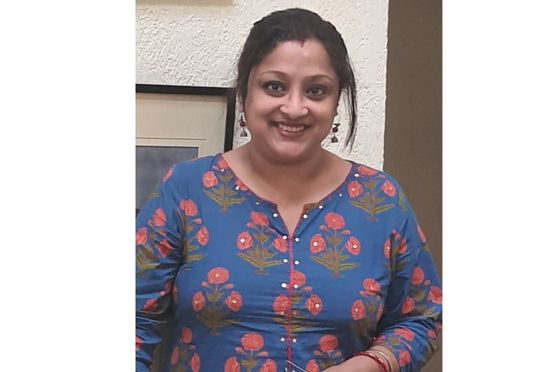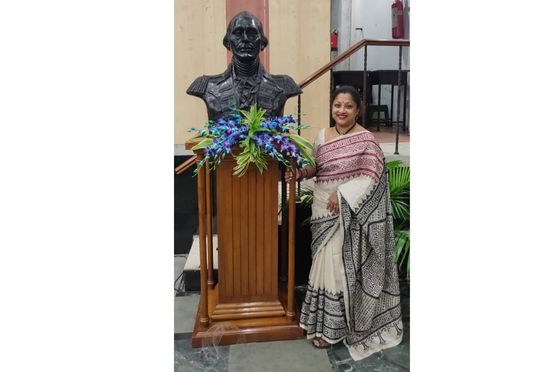Summary
Economics applications enable students to make better decisions and understand complex market systems in the long run
The latest specimen paper from the council shows a new pattern for the ICSE 2023 Economic Applications question paper
Economics applications enable students to make better decisions and understand complex market systems in the long run. As a subject, Economics impacts our daily lives and plays a crucial role in the functioning of society. The ICSE Class 10 Economics syllabus is framed to help students understand critical aspects of the subject. To help students ace their preparation, The Telegraph Online Edugraph brings you expert tips from Mrs Ananya Mitra, Senior Economics Teacher, La Martiniere for Girls School. Read on to know more
The latest specimen paper from the council shows a new pattern for the ICSE 2023 Economic Applications question paper.
ICSE Economic Applications Class 10 new paper pattern
Section A is of 40 marks, where 20 marks are allotted to MCQs of 1 mark each i.e. [20 x 1 = 20]. The rest of section A contains10 short questions of 2 marks each i.e. [2 x 10 = 20].
Study tips for Section A
- The textbook should be studied in detail and selective study strictly avoided. This will be very helpful to answer MCQs and application based questions.
- Do not forget to go through ALL the options in an MCQ before choosing your answer. If more than one answer seems likely, then choose the one that is most suitable in your opinion
- While preparing each topic, prepare your answers keeping in mind the heading explanation example format. Writing only headings is not enough in case of short answers or long answers.
- Always focus on keywords and key phrases for your answers.
- Definitions of important concepts should be memorised along with relevant examples, giving more importance to examples in the context of the Indian economy.
Click here to know how to prepare for Commercial Studies paper

Mrs Ananya Mitra, Senior Economics Teacher, La Martiniere for Girls School Source: Mrs Ananya Mitra
Section B is of 60 marks and consists of 6 questions, out of which students have to choose ANY 4. Each question is of 15 marks and has two sub-parts i.e. [7 + 8 = 15].
Guidelines to answer Section B
- These are long answer type questions. While some of the questions may be straight knowledge-based questions, others may be application-based or diagram-based ones.
- For diagrams, DO NOT forget to label the axes and the graphs correctly. Draw neat and self explanatory diagrams, with proper arrows and labelling wherever required.
- In case of long questions, give relevant diagrams even if it is not specifically mentioned. Diagrams are an important part of an answer, wherever relevant.
- Be confident while answering the question on Case Study. Practise similar types of questions from ICSE question papers of previous years.
- Choose your questions carefully based on your strong areas.
ALSO READ || How to prepare for English Language Paper 1
OVERALL TIPS:
- Remember that this is the only 100 marks paper you are answering in 2 hours. So, just completing the paper may be a challenge, if you do not practise time management.
- Spend adequate time on concept-based chapters . For instance, in the chapter Elasticity of Demand, practise simple numericals from the Percentage method. Ignore the “ –” sign in case of elasticity of demand.
- Understand the concepts behind credit control functions of the Central Bank, especially the instruments of Quantitative credit control like CRR, OMO, Bank rate.
- Go through the scope of the syllabus thoroughly and follow it to be on track.
- A particular concept may be referred to by different names. Remember the alternative names. For example:
-Horizontal summation is called lateral summation
-Characteristics of land may be referred to as peculiarities of land.
-Qualitative credit control is called Selective credit control.
- ALL points should be learnt for questions on Functions and Characteristics.
- All the types of capital must be learnt along with suitable examples. For example: fixed, circulating, sunk, floating, real, money, debt, auxiliary, remunerative, social, public and national capital.
- Differences and similarities of all the factors of production must be learnt. When writing answers, differences may be presented in a neat tabular form along with examples.
- Differences and similarities of all the forms of market must be learnt along with suitable examples.
READ MORE || How to prepare for English Literature- Paper 2

Source: Mrs Ananya Mitra
Stress is another factor that you may be worrying about as you prepare for this crucial phase of your life - your first board exams. Here are a few additional tips from Mrs Mitra on how to manage stress.
- Now that you have completed your syllabus and have a fair idea of what is expected , you need to allocate time to the subject for careful revision and practice. [If you are lucky to have emotionally invested in a subject like Economic Applications, it will pay rich dividends and you will automatically be stress-free.]
- Make your own customised study timetable and stick to it. Try to set short-term study goals that are reasonably easy to achieve.
- Do not cut down on sleep. It is necessary to get the stipulated hours of sleep, especially during examination time.
We at Edugraph hope that these aforementioned tips from Mrs Ananya Mitra, prove to be helpful for you. All the best for your exams.
Appearing for Commercial Applications paper? Click here to get expert tips
Last updated on 24 Jan 2023



